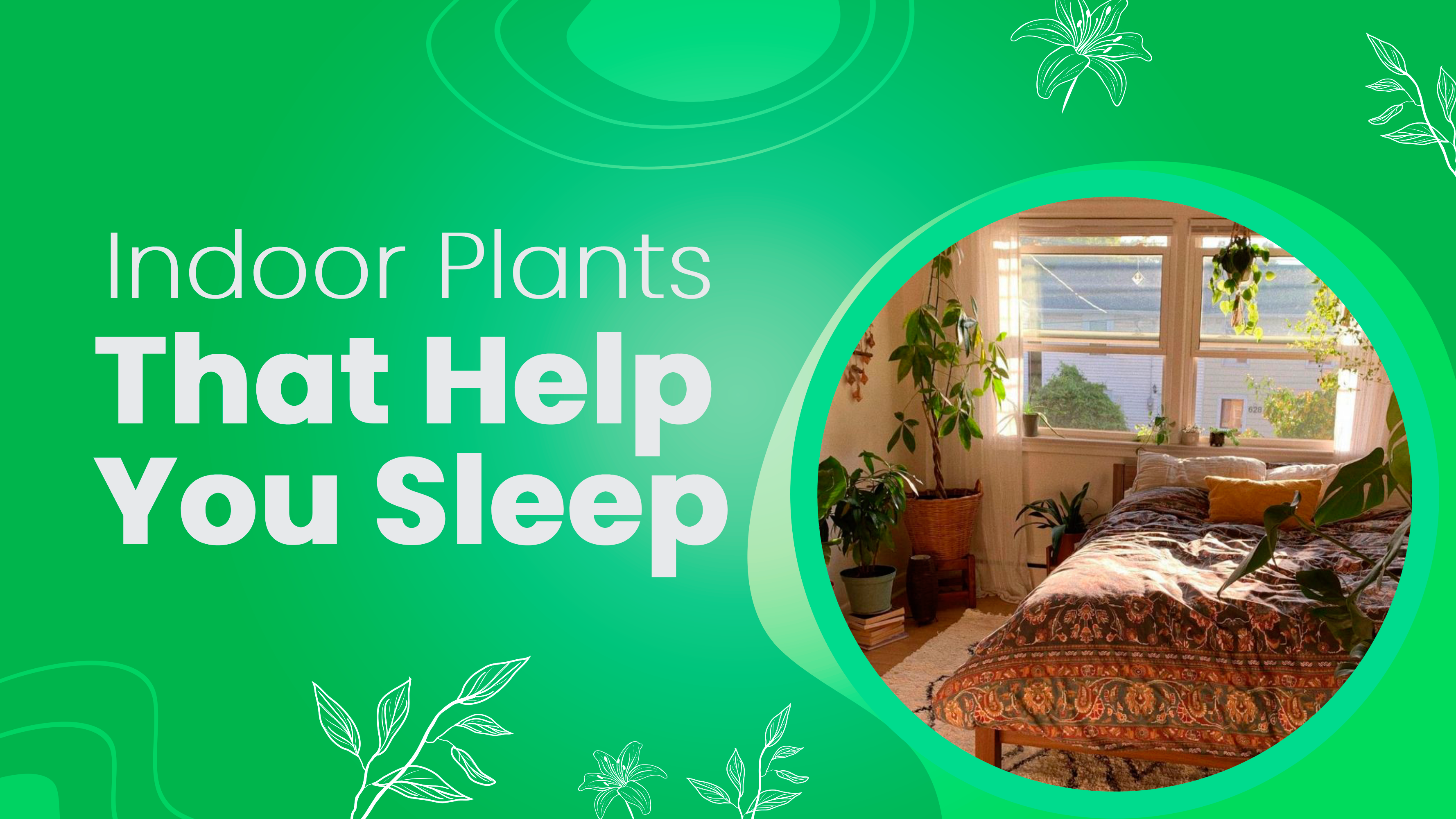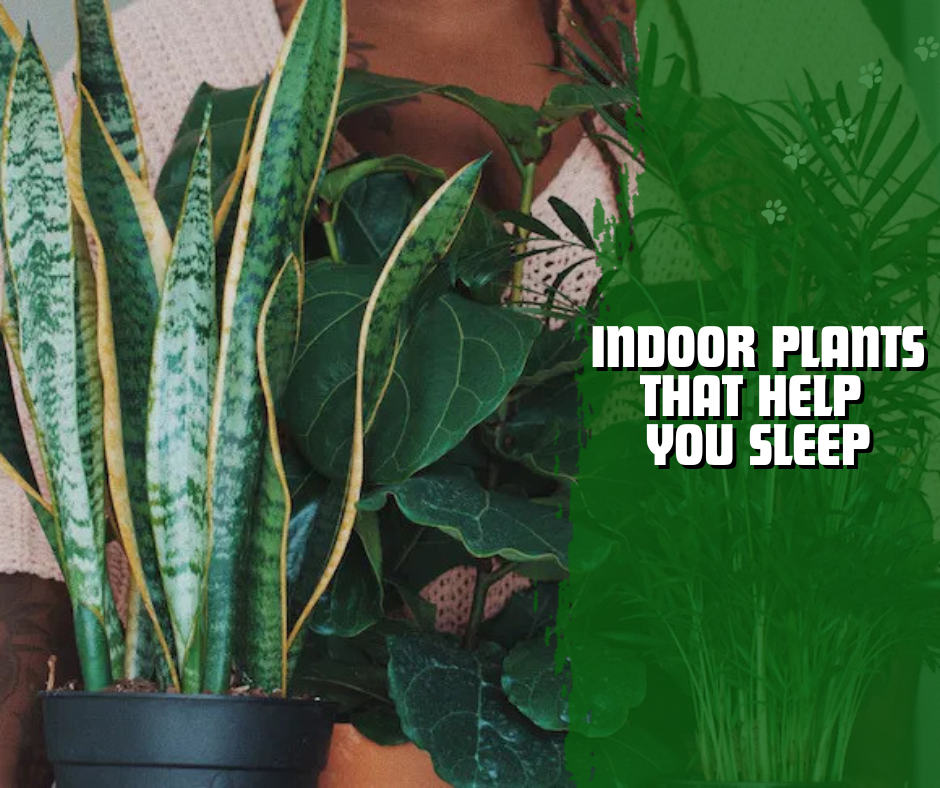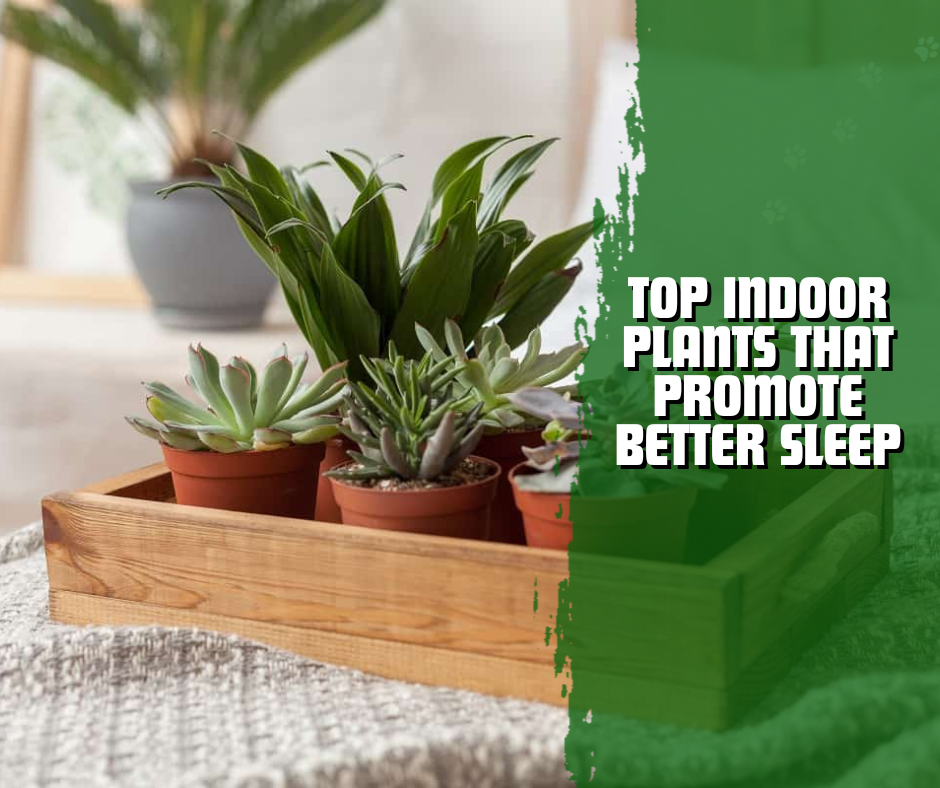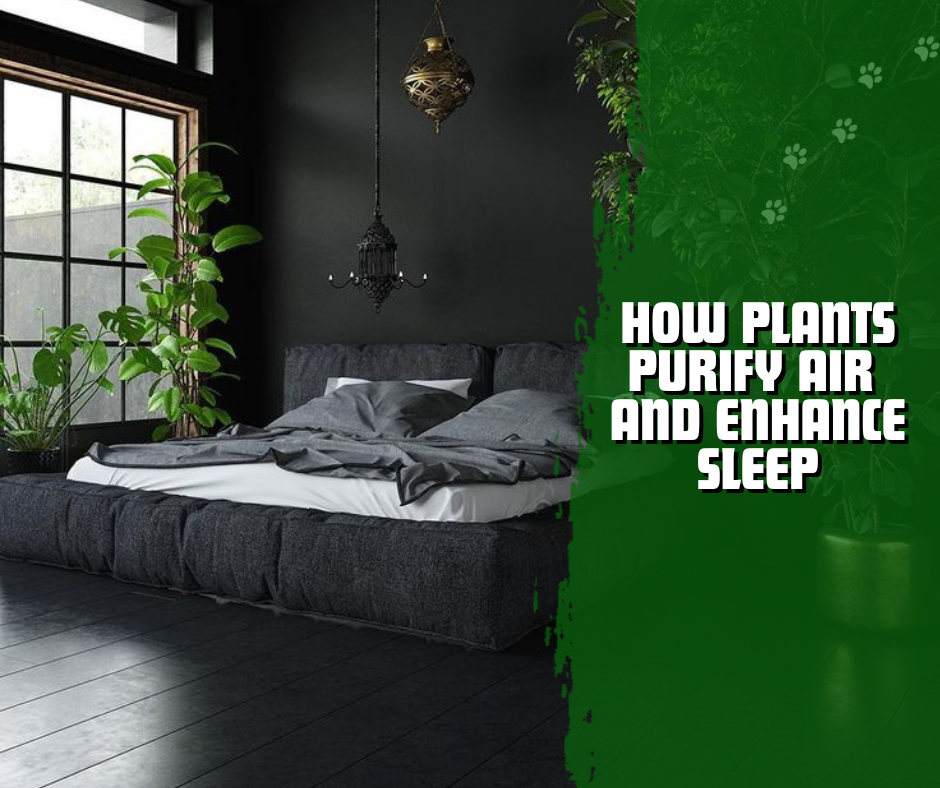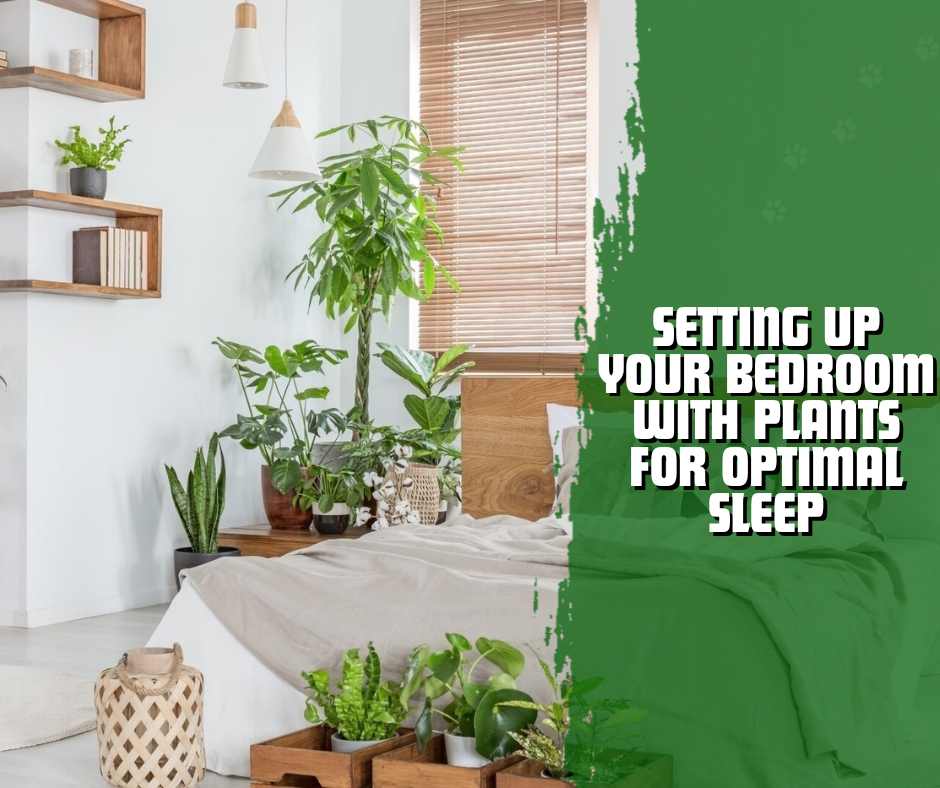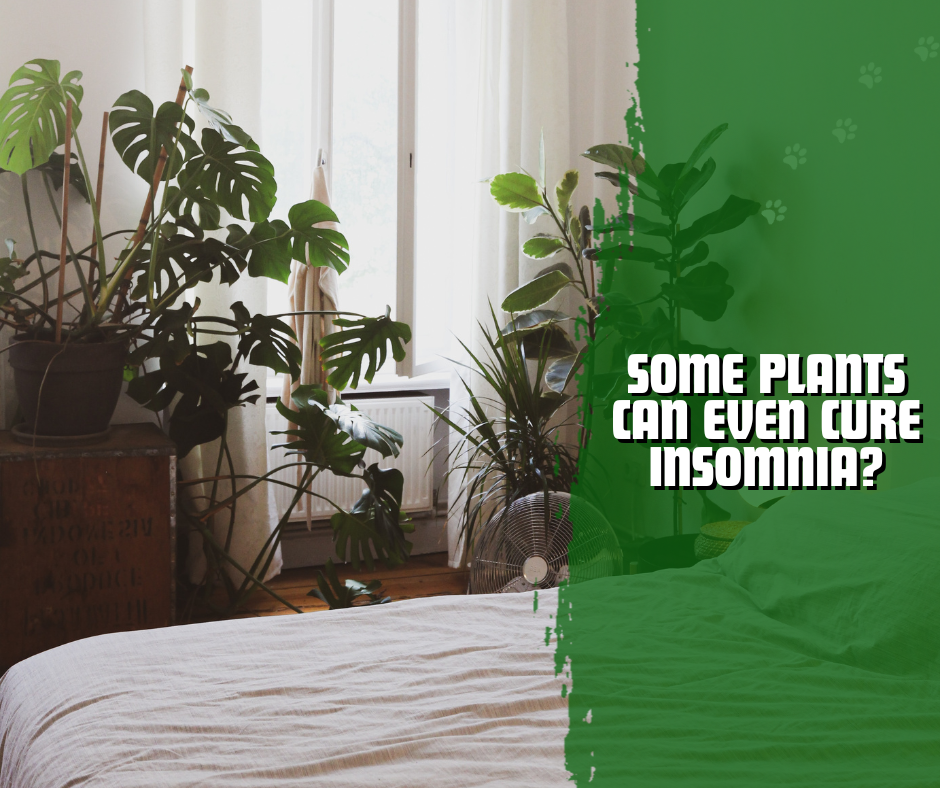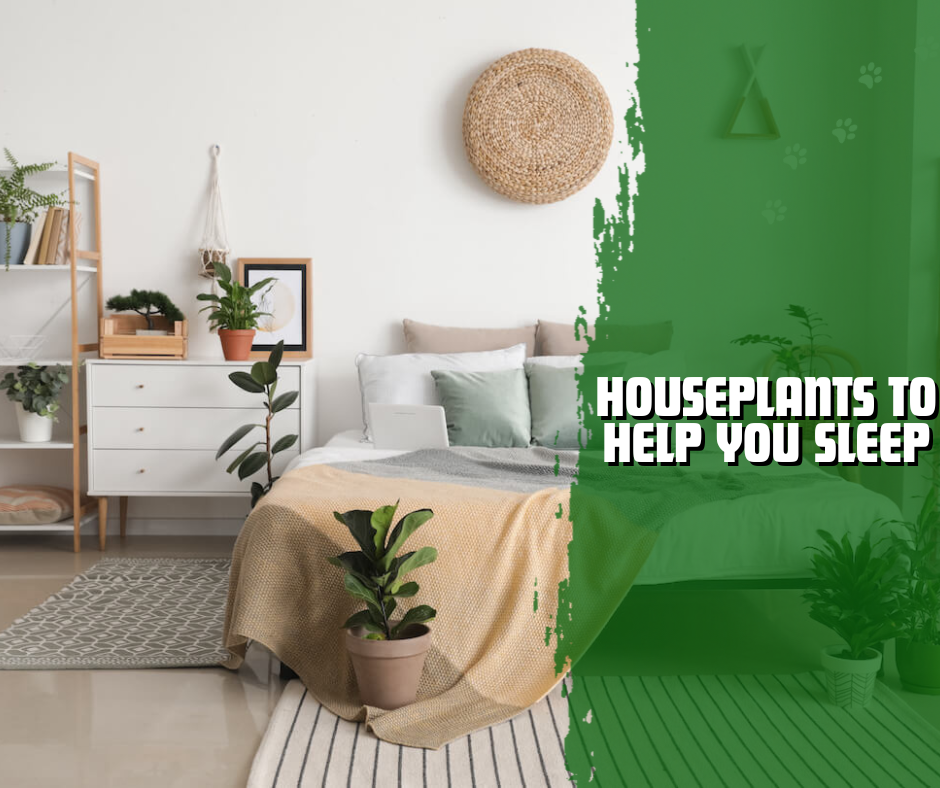HousePlantJoy is supported by our audience. When you purchase through one of our links, we may earn a small affiliate commission. As an Amazon Associate I earn from qualifying purchases. Your cost is not affected.
==================
Do you find yourself tossing and turning at night, struggling to get a good night’s sleep? The solution to your problem may be as simple as adding some plants that help you sleep in your bedroom. Indoor plants have been proven to improve air quality, reduce stress, and promote relaxation. All of which can contribute to a better night’s sleep.
In this blog, we uncover how indoor plants help you sleep better. We explore the science behind how plants improve sleep quality by reducing carbon dioxide levels and releasing oxygen. We also discuss some of the top indoor plants that promote better sleep.
We will also share tips on setting up your bedroom with plants for optimal sleep and how some plants can even cure insomnia.
Say goodbye to restless nights and hello to peaceful slumber with these sleep-inducing indoor plants!
What’s Inside
- Houseplants aid our sleep in several essential ways.
- Plants purify the air, removing many toxins.
- Indoor plants add oxygen to our air and remove excess carbon dioxide.
- Greenery provides a relaxing, destressing environment that helps our mood and relaxation.
- Many plants produce a relaxing aroma that helps promote better sleep.
The Secret Behind Sleep-Inducing Indoor Plants
Indoor plants can improve sleep quality by purifying the air we breathe. These plants release fragrances that promote relaxation, creating a calming atmosphere in our bedrooms.
Research even shows that having indoor plants helps reduce stress levels, leading to a better night’s sleep. Adding attractive and low-maintenance plants like English Ivy or Gardenia to our bedside tables or placing them near our mattresses helps create a sleep-friendly environment. These plants require little care and can enhance our sleep by emitting the scent of jasmine or providing oxygen-rich air.
How Plants Improve the Quality of Sleep
Indoor plants have multiple ways of improving the quality of sleep. They release oxygen, which enhances breathing during sleep.
Fragrant plants like lavender, jasmine, and aloe vera promote relaxation, aiding in better sleep.
Additionally, indoor plants help reduce carbon dioxide levels, ensuring a healthier indoor environment for quality sleep.
Their air-purifying benefits eliminate toxins and allergens, benefiting those with allergies. Studies have also shown that plants in the bedroom can lower anxiety levels, leading to more restful sleep. Incorporating attractive plants into your sleep environment can positively impact your sleep quality.
The Tranquility Brought About by Greenery in the Room
Indoor plants in your bedroom enhance the aesthetic appeal and bring a sense of tranquility, creating a peaceful sleep environment.
Connecting with nature through plants has a calming effect on the mind and body, helping to promote better sleep. The visual beauty of attractive plants creates a relaxing and stress-free ambiance essential for a good night’s sleep.
Furthermore, indoor plants act as natural stress relievers, fostering a serene atmosphere that aids in achieving restful sleep. The gentle movement of swaying leaves provides a soothing lullaby-like effect, further enhancing the sleep experience.
Credits: Balcony Garden Web
Top Indoor Plants That Promote Better Sleep
Are you looking to enhance your sleep quality? Consider adding some of these top indoor plants to your bedroom. Lavender, with its calming fragrance, creates a peaceful atmosphere. Snake plants release oxygen, improving the air quality for better sleep.
Spider plants purify the air, creating a healthier indoor environment. Peace lilies help to remove toxins and create cleaner air, promoting better sleep. Aloe vera plants purify the air and offer a soothing gel, perfect for a peaceful sleep environment. You can create your sleep haven with these attractive plants.
Lavender, Jasmine, Gardenia, and Their Calming Fragrances
With its fragrant flowers, lavender creates a calming atmosphere that promotes better sleep. Its scent has been proven to reduce stress levels and induce relaxation.
The fragrance of lavender plants can lull you into a deep, restful sleep. Diffusing lavender essential oil in your bedroom can create a sleep-inducing ambiance.
Studies have shown that lavender’s scent improves sleep quality and duration. Lavender is an excellent choice for those seeking a fragrant plant that helps promote a good night’s sleep.
Likewise, Jasmine and gardenia are two other types of flowering indoor plants for better sleep.
Known for their fragrant and calming scents, Jasmine flowers are usually white or yellow and have a sweet and exotic aroma often used in perfumes, teas, and aromatherapy. Gardenia flowers are generally white or cream and have a rich and creamy fragrance in perfumes, candles, and cosmetics.
Both jasmine and gardenia have been shown to have relaxing and soothing effects on the mind and body, as they can reduce stress, anxiety, and depression and improve mood and sleep quality.
Jasmine and gardenia are popular indoor and outdoor gardening choices, as they can add beauty and fragrance to any space.
The Oxygen-Rich Snake Plant
The snake plant, also known as mother-in-law’s tongue, is an excellent choice for better sleep due to its ability to release oxygen. It helps improve indoor air quality, promoting a healthier sleep environment.
These low-light plants thrive in indirect light levels, making them perfect for bedrooms. Snake plants filter toxins such as formaldehyde, benzene, and xylene, ensuring cleaner air for better sleep.
Additionally, the moisture the snake plant’s foliage releases increases humidity levels. This prevents dry skin and allergies that can disrupt sleep.
The Air-Purifying Spider Plant
Spider plants are an excellent choice for plants that help you sleep due to their air-purifying benefits. They help remove toxins like formaldehyde, carbon dioxide, and xylene from the air, creating a cleaner sleep environment.
Spider plants are low-maintenance and thrive in low light levels, making them ideal for bedrooms. By improving air quality and reducing allergens, these plants contribute to better sleep quality.
Additionally, spider plants release water vapor, increasing humidity levels and preventing dry skin and allergies that can disturb sleep.
Peace Lily, a Nighttime Oxygen Supplier Houseplant
Peace lilies, with their air-purifying benefits, create a healthier sleep environment. They remove toxins like formaldehyde and benzene, ensuring better indoor air quality for quality sleep.
Thriving in low light levels, peace lilies are ideal for bedrooms, promoting a good night’s sleep. These plants release oxygen, especially at night, enhancing sleep quality.
The white flowers of peace lilies add beauty, creating a soothing sleep environment. With little care required, peace lilies are an excellent plant for beginners.
Aloe Vera, the Miracle Plant
Aloe vera, the miracle plant, holds numerous benefits in improving sleep quality. This low-maintenance plant adds beauty to your space and purifies the indoor air, creating a healthier sleep environment.
Aloe vera plants are known for their air-purifying properties, removing toxins like formaldehyde, benzene, trichloroethylene, xylene, and toluene. Their ability to thrive in bright light makes them an excellent choice for sunny windowsills, enhancing sleep quality.
The aloe vera gel can soothe minor burns, insect bites, and dry skin, promoting a more comfortable sleep experience.
How Plants Purify Air and Enhance Sleep
Indoor plants have the remarkable ability to purify the air, creating a healthier sleep environment. They can effectively remove toxins and allergens that can disrupt sleep quality.
Certain plants, like snakes, spiders, peace lilies, and aloe vera, are effective in removing harmful pollutants such as formaldehyde, benzene, trichloroethylene, xylene, and toluene.
Additionally, plants release oxygen, increasing oxygen levels in the room and contributing to better sleep quality and overall health benefits. The moisture emitted by snakes, spiders, peace lilies, and aloe vera also helps increase humidity. This prevents dry skin, allergies, and respiratory issues that disturb sleep.
Indoor plants purify the air and create a natural and comforting sleep environment, enhancing relaxation and sleep quality.
The Process of Air Purification by Plants
Indoor plants have the unique ability to improve air quality by eliminating harmful toxins. Through a scientific process, plants purify the air and create a healthier environment for better sleep.
Certain plants, like lavender and snake plants, enhance air quality and aid sleep. Caring for these attractive plants requires little effort, but the benefits are immense. Not only do they purify the air, but they also add a touch of natural beauty to your home decor.
So, why not invite some English ivy or fragrant jasmine into your bedroom and experience the wonders of indoor plants that help you sleep?
The Role of Oxygen Emission in Good Sleep
Indoor plants play a crucial role in promoting good sleep by emitting oxygen. These plants improve air quality, leading to better sleep.
Certain plants like lavender and jasmine have calming properties that reduce stress and anxiety, aiding in relaxation. Spider plants and peace lilies are known for their air-purifying abilities, removing toxins from the air.
Aloe vera and snake plants release oxygen at night, making them perfect for bedrooms. Incorporating indoor plants into your sleeping environment creates a peaceful atmosphere, enhancing the quality of your sleep.
Setting Up Your Bedroom
with Plants for Optimal Sleep
Setting up your bedroom with plants can significantly contribute to optimal sleep. Indoor plants add a touch of greenery and natural beauty to your space and offer numerous benefits for better sleep.
When choosing plants for your bedroom, consider those that release oxygen at night, such as snake plants and aloe vera. Place them strategically for optimal airflow and light exposure.
You can use plant accessories like diffusers and humidifiers to enhance the plant’s effects. Also, please maintain the health and vitality of your indoor plants with proper care and attention.
Did You Know Some Plants
Can Even Cure Insomnia?
Discover the incredible power of certain plants to cure insomnia. Plants like valerian, lavender, and jasmine have natural sleep-inducing properties and can help you sleep a restful night.
Create a sleep-friendly environment with indoor plants such as aloe vera, snake plants, and peace lilies that release oxygen and purify the air.
Add golden pothos, spiders, and jade plants to your bedroom to reduce anxiety and improve sleep duration. Harness the benefits of lavender, valerian, and jasmine to fall asleep faster and wake up refreshed.
Houseplants to Help You Sleep
To wrap it up, incorporating sleep-inducing indoor plants into your bedroom can significantly improve the quality of your sleep. These plants provide a calming and tranquil environment and purify the air, increasing the oxygen levels for a better night’s rest.
Some top indoor plants that help you sleep include lavender, snake, spider, peace lily, and aloe vera. Setting up your bedroom with these plants creates a soothing atmosphere conducive to optimal sleep.
Additionally, certain plants, such as lavender, have even been found to have properties that can help treat insomnia. So why not give it a try? Transform your bedroom into a sleep haven with the power of nature.
FAQs
How do these plants work to improve sleep?
Indoor plants improve sleep by releasing oxygen and absorbing carbon dioxide, promoting better air quality. Some plants, like lavender and jasmine, have relaxing aromas that reduce stress and anxiety. Greenery in the bedroom creates a calming environment for relaxation before sleep. Exposure to nature positively impacts mental health.
What are some indoor plants that help you sleep and can improve air quality?
Some indoor plants that can improve air quality and promote better sleep include lavender, jasmine, snake plant, and aloe vera. These plants have calming effects, reduce anxiety levels, and improve air quality for a more restful sleep.
Are there any special care instructions for these sleep-promoting plants?
Special care instructions for sleep-promoting plants can vary. They usually need indirect sunlight and moderate watering. Some may require specific temperatures or humidity levels. Research the care instructions for each plant to ensure they thrive and promote better sleep.
Can these plants be harmful to pets or children?
While indoor plants have numerous benefits, it’s important to consider the safety of pets and children. Some plants can be toxic if ingested, so research their toxicity before bringing them home. Keep plants out of reach or use barriers and seek immediate veterinary or medical attention if ingestion occurs.
Learn More About Houseplants!
Discover more types of houseplants, their benefits, and how to care for them with us! Join us on Facebook, Instagram, and Twitter for beautiful photos, plant care tips, and a community that celebrates the joy of indoor gardening.
Facebook: https://www.facebook.com/houseplantjoyblog
Instagram: http://instagram.com/houseplantjoy20
Twitter: https://twitter.com/HouseplantJoy
Let’s nurture our green spaces together!

